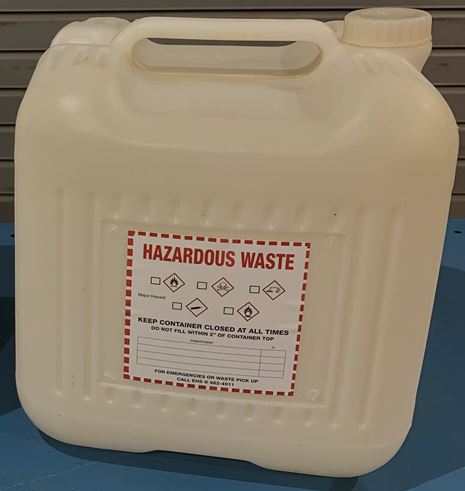This semester, I am taking my first lab class at Penn State. As a chemical engineering major, time in the lab is very important to me, as the techniques and skills I learn there will be applied to my everyday life in the future. I am in Chem 213W, the writing-intensive organic chemistry lab here. Without a doubt, it has been one of the hardest and stressful classes I have taken here. However, spending time in a new setting that I am not used to caused my observant eyes to watch out for patterns. Science is perceived as a great thing, it is innovations for human good. For example, scientists are working on developing a cure for diseases, as well as saving the environment from what is inevitable doom.
However, I frequently observe the lab using single-use plastic and glass, overusing chemicals such as acetone, and not promoting sustainable practices. For example, students go through multiple pairs of latex gloves per lab, and all of these are thrown away, instead of finding an alternative way to recycle them. Each lab session, we are required to acetone rinse our glassware before and after using it to ensure that there are no remnants left from previous experiments. The used acetone is disposed of in a large lab waste container that is filled with a combination of used and contaminated substances. According to Princeton University’s environment safety website, these waste containers must be brought to special chemical treating facilities where they are safely altered and disposed of properly.


Chemistry lab produces several of these large containers weekly, which has the potential to be reduced if lab classes were regulated the overuse. Much of the chemicals that are disposed of were never used. Students simply collect too much of the reactant chemicals and do not use all of it in the experiment.
There is no doubt that lab classes are necessary and important. They are what teach future scientists where their home will be. They keep Penn State’s scientists and engineers competitive with all the others in the world. The lab is very important to me, but so is the environment. Environmental education on the disposal of lab wastes would be a great lesson to teach. Then, students will know what happens to the excess chemicals that are not used and raise awareness for the matter. Through education, change can occur to better the environment.